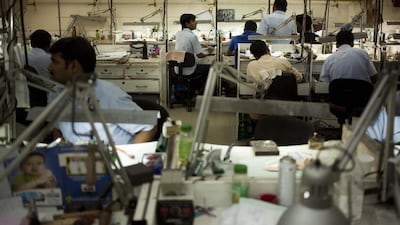When employees end their contracts with a company in many Middle Eastern countries, they are entitled to a final payment based on the amount of time they were in the job. This is a smart idea, but in practice presents several challenges for employers that have to do with budgetary liability and future planning. Since companies often don’t know when employees plan to leave or how many could leave at any one time, it is difficult to budget enough money to cover all end-of-service payments.
That is why many companies are poorly prepared to dole out end-of-service payments. According to research from Zurich Global Life, a majority of employers fail to set aside enough for these mandatory final payments. This is risky for both the companies and the employees. If several employees were to leave at one time and the company didn’t have adequate funds in reserve, there will clearly be a problem for both parties. In short, everyone loses.
There is a prudent solution that would remove this unknown liability, which this newspaper has long advocated: the creation of a statewide retirement fund into which companies would make regular payments – either monthly or quarterly, for example – towards their employees’ gratuities. In essence, the fund would operate as a retirement scheme that could adapt to an individual worker during his or her career in the UAE. If a worker were to change job, the account could move with the employee.
For companies, they would have an exact handle on the amount of funds they have on hand for each employee. Such information would aid proper budgeting. According to Zurich Global Life, the average final payment for expatriate workers has risen 140 per cent over the past six years as the average length of employment time has risen from five to seven years.
The direction of travel in this debate is clear. The longer that employees stay in their jobs, the more of a liability their end-of-service payment becomes. By placing regular payments in a third-party fund, companies will be able to remove this liability from their balance sheets and not face cash flow problems if and when several workers leave at the same time.
While the system in place doesn’t need to be thrown out altogether, it is long over due for sensible reform and the current economic climate provides a perfect time to encourage change.

